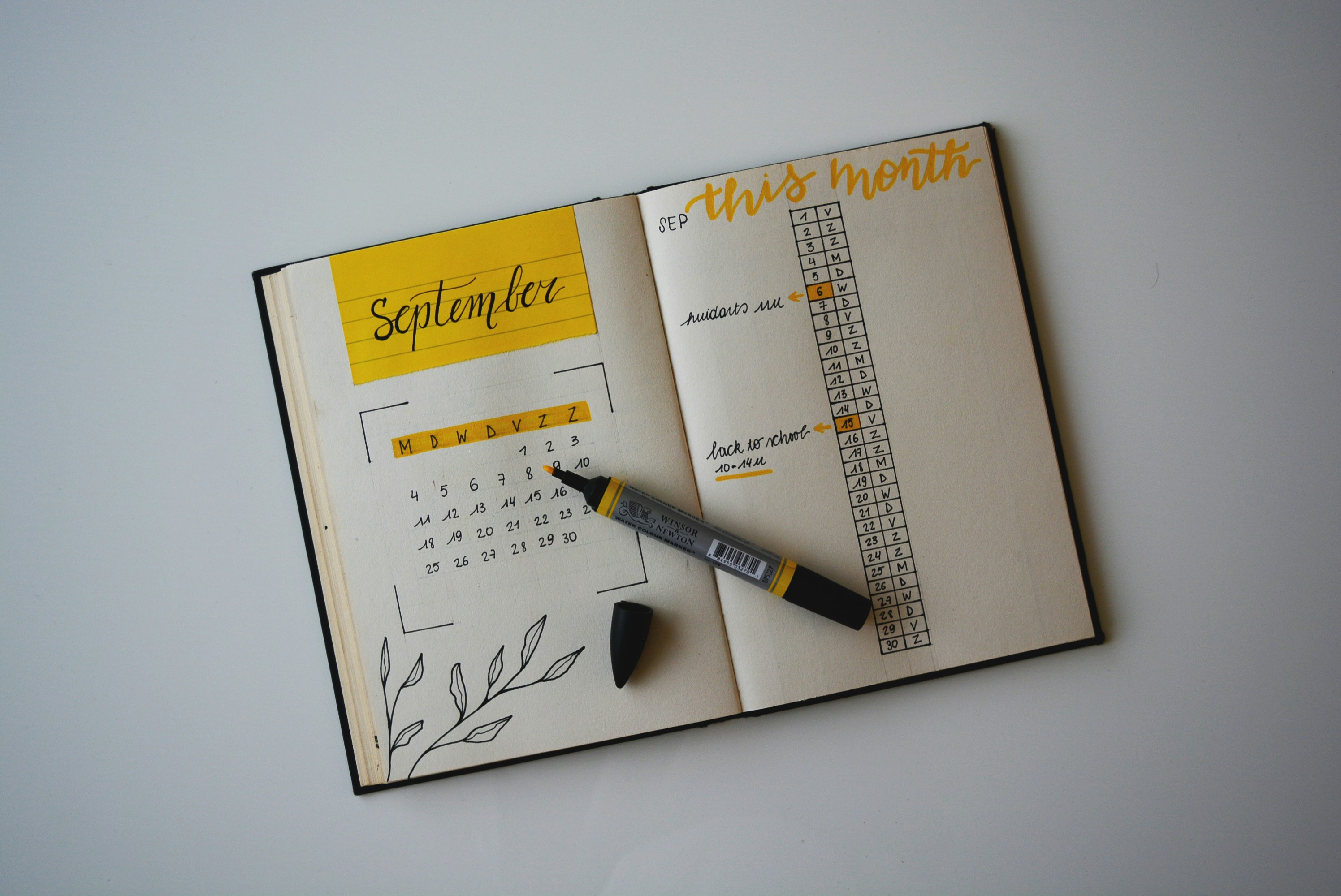Picture this: it’s the end of the world as we know it. But instead of feeling overwhelmed, you’re calm and collected, equipped with all the necessary supplies and skills to stay safe and secure. Whether you’re a seasoned survivalist or just starting out on your journey to becoming a prepper, our beginner’s checklist has got you covered. From essential items to must-have skills, we’ll guide you through the basics of preparing for doomsday. So, grab a pen and paper, because it’s time to take your first steps towards being a prepared and empowered prepper.
Food and Water
Stockpiling Non-Perishable Food
When preparing for a doomsday scenario, one of the most crucial aspects is ensuring you have an adequate supply of non-perishable food. These are items that can be stored for long periods without spoiling. Canned foods, dried foods, and freeze-dried foods are excellent options.
Canned Foods
Canned foods are a staple in any prepper’s pantry. They have a long shelf life and can provide a variety of nutrients. Stock up on canned meats, vegetables, fruits, and soups. Choose items that you and your family enjoy and make sure to rotate them regularly to maintain freshness.
Dried Foods
Dried foods are lightweight and easy to store. Options such as dried fruits, jerky, nuts, and grains can provide essential nutrients during an emergency. Invest in a food dehydrator to make your own dried foods from fresh produce, thereby saving you money in the long run.
Freeze-Dried Foods
Freeze-dried foods are another excellent option for long-term storage. They retain their flavor, texture, and nutritional value while having a significantly extended shelf life. These meals often come in pouches and can be rehydrated with water.
Water Storage
Water is an absolute necessity for survival. Ensure you have enough water stored to meet your family’s needs in a doomsday situation. Plan for at least one gallon of water per person per day. Store water in food-grade containers, such as BPA-free plastic or stainless steel, in a cool, dark place.
Water Purification Methods
In addition to storing water, it’s essential to know how to purify water from alternative sources. Invest in water filtration systems or purification tablets, which can remove harmful bacteria and viruses. Boiling water is also an effective method as it kills most pathogens. Having multiple options for water purification will ensure you can access safe drinking water no matter the circumstances.
Shelter and Clothing
Finding a Suitable Shelter
In a doomsday scenario, finding shelter is crucial for your survival. Identify potential shelter options in your area, such as basements, underground structures, or even natural formations like caves. Consider the durability and security of the shelter, as well as its proximity to necessary resources.
Collecting Essential Tools
Having the right tools in your prepper arsenal can make a significant difference when it comes to building a shelter and ensuring your safety. Some essential tools to consider include a multi-tool, a sturdy camping knife, a hatchet, a folding shovel, and a compass. These tools can help you navigate, build structures, and perform various tasks.
Building a Temporary Shelter
If finding existing shelter options isn’t possible, knowing how to build a temporary shelter is essential. Learn basic survival skills like constructing a lean-to shelter using natural materials like branches, leaves, and debris. Practice your shelter-building skills to increase your efficiency and confidence.
Insulating Clothing
To protect yourself from extreme weather conditions, it’s important to have insulating clothing. Layering is key to retaining body heat. Invest in quality thermal underwear, insulating jackets, waterproof outer layers, and durable boots. Don’t forget to include extra socks and gloves in your prepper supplies.
Protective Gear
In a doomsday scenario, you may find yourself facing unforeseen dangers. Equip yourself with protective gear such as goggles, masks, and gloves, which can shield you from hazardous materials or airborne contaminants. Additionally, consider investing in a reliable gas mask to provide protection in case of chemical or biological threats.
Emergency Supplies
First Aid Kit
A well-stocked first aid kit is a crucial component of your prepper supplies. It should include bandages, antiseptics, pain relievers, adhesive tape, scissors, tweezers, and any necessary prescription medications. Keep your first aid kit easily accessible and regularly check the expiration dates of medications and supplies.
Prescription Medications
If you or a family member require prescription medications, ensure you have an ample supply to last through an extended emergency. Contact your healthcare provider to discuss options for obtaining extra prescriptions or alternative medications. Regularly rotate the stock to prevent expiration.
Hygiene Products
Maintaining personal hygiene is important for overall well-being and preventing the spread of infections during a doomsday scenario. Stock up on hygiene products such as toothpaste, toothbrushes, soap, shampoo, toilet paper, and feminine hygiene items. Look for travel-sized or individually wrapped options for better portability.
Lighting and Communication
In a power outage or emergency situation, reliable lighting and communication methods are vital. Invest in portable LED lanterns, flashlights, and headlamps, along with a supply of batteries or rechargeable power sources. Additionally, consider having a hand-cranked or solar-powered radio for receiving emergency updates.
Batteries and Power Sources
Ensure you have an ample supply of batteries in various sizes for all your essential devices. Consider investing in rechargeable batteries and a solar charger. Backup generators or alternative power sources such as portable solar panels or wind turbines can be beneficial for longer-term emergencies.
Survival Tools
Having a range of survival tools at your disposal can significantly increase your chances of successfully navigating a doomsday scenario. Consider including items such as a fire starter, a multi-tool, a whistle, a signal mirror, and a length of paracord in your emergency supplies. These tools can serve multiple purposes and aid in various survival tasks.
Cash and Important Documents
In times of crisis, traditional banking systems may become inaccessible. Keep a stash of cash in small denominations, as it may be necessary for purchasing essential items. Additionally, make copies of important documents such as identification, insurance policies, medical records, and contact information for loved ones. Store these copies in a waterproof and fireproof container.
Self-Defense
Firearms and Ammunition
Self-defense is a critical aspect of survival preparation. If you choose to incorporate firearms into your prepper plan, ensure you receive proper training and follow all legal requirements. Select a reliable firearm that you can handle proficiently and safely. Stock up on ammunition and regularly practice your shooting skills.
Non-Lethal Weapons
If firearms are not suitable for your situation, consider alternative non-lethal weapons. Pepper spray, stun guns, and batons can provide a means of defense without the complexities of firearm ownership. Learn how to use these weapons effectively and practice in a safe environment.
Self-Defense Training
Regardless of the weapons you choose, receiving self-defense training is invaluable. Enroll in self-defense classes that teach practical techniques for physical protection and situational awareness. The knowledge and skills gained can boost your confidence and help you respond effectively in dangerous situations.
Perimeter Security
Creating a secure perimeter around your shelter or property is essential to deter potential threats. Use natural barriers like thorny bushes or fences to discourage unwanted entry. Install motion sensor lights and consider setting up surveillance cameras to monitor the area. Regularly assess and reinforce your perimeter security measures.
Self-Defense Gear
In addition to weapons and training, having the right gear can enhance your self-defense capabilities. Consider investing in personal protective equipment like body armor, reliable boots for mobility, and a tactical backpack to store essential items. These items can provide an extra layer of protection during an emergency.
Health and Hygiene
Personal Hygiene
Maintaining personal hygiene in a doomsday scenario can help prevent illness and improve overall well-being. Stock up on personal hygiene items such as soap, hand sanitizer, wet wipes, toothpaste, and menstrual hygiene products. Plan for a long-term supply to ensure you can maintain good hygiene practices.
Sanitation Supplies
Proper sanitation and waste management are vital to prevent the spread of diseases. Stockpile essential sanitation supplies like garbage bags, disinfectant wipes, bleach, and toilet paper. Consider investing in a portable camping toilet or building a simple sanitation system if access to running water and functioning plumbing is compromised.
Medical Supplies
Injuries and illnesses can occur even when everyday healthcare resources are scarce. Build a comprehensive medical kit that includes bandages, wound care supplies, pain relievers, antiseptics, and over-the-counter medications. Consider adding medical reference books or guides to assist in diagnosing and treating common ailments.
Staying Physically and Mentally Fit
Preparing for doomsday requires not only physical strength but also mental resilience. Engage in regular physical exercise to maintain your overall fitness. Explore activities like hiking, running, or martial arts to increase stamina and endurance. Dedicate time to practice stress-management techniques like meditation, deep breathing, and journaling to enhance your mental well-being.
Energy and Power
Alternative Energy Sources
In a doomsday scenario, access to traditional energy sources may not be possible. Explore alternative energy options such as solar, wind, or hydroelectric power. Consider investing in portable solar panels, a small-scale wind turbine, or a micro-hydro generator to harness renewable energy for basic needs.
Generators
A backup generator can provide a reliable source of power during an emergency. Select a generator that suits your energy requirements and fuel availability. Test your generator regularly and store a sufficient supply of fuel in a safe and ventilated location. Familiarize yourself with generator safety guidelines to prevent accidents.
Solar Power
Harnessing the power of the sun is an efficient way to generate energy during a doomsday scenario. Install solar panels on your property or invest in portable solar panels that can be easily transported. Utilize solar power for charging batteries, running essential electronics, and providing lighting.
Wind Power
If you live in an area with consistent wind patterns, a wind turbine can be an excellent alternative energy source. Study the wind patterns in your region and consult with experts to determine if a wind turbine is a viable option for your prepper setup. Remember to prioritize safety and proper installation.
Battery Banks
Building a battery bank is an effective way to store energy for later use. Choose deep-cycle batteries designed for renewable energy storage. Connect these batteries to your alternative energy sources, such as solar panels or wind turbines, and use an inverter to convert the stored energy into usable electricity when needed.
Transportation
Off-Road Vehicles
In a doomsday scenario, access to reliable transportation can be a game-changer. Consider investing in off-road vehicles such as SUVs, trucks, or motorcycles that can handle rough terrains. Regularly maintain and fuel these vehicles to ensure they are in optimal working condition when you need them most.
Bicycles
Bicycles can be a practical and efficient mode of transportation during a doomsday scenario. They don’t require fuel, are easily maneuverable, and can navigate areas inaccessible to larger vehicles. Invest in sturdy bicycles and make sure everyone in your family has a properly fitting helmet for safety.
Fuel Storage
If you have vehicles or equipment that rely on gasoline or diesel, storing fuel is crucial. Use approved fuel storage containers and store them in a cool, well-ventilated area away from living spaces. Rotate your fuel supply regularly to prevent degradation and maintain fuel quality.
Navigation Tools
When traditional navigation systems become unreliable, having alternative tools can help you find your way. Include items such as maps, a compass, a GPS device, and a reliable handheld radio for communication. Familiarize yourself with reading maps and using compasses to increase your navigation skills.
Survival Skills
Fire Starting
The ability to start a fire is an essential survival skill. Learn different methods of fire starting, such as using a flint and steel, fire starters, or primitive methods like the bow drill or hand drill. Practice in various weather conditions to improve your proficiency.
Outdoor Cooking
Knowing how to cook without modern appliances is invaluable during a doomsday scenario. Invest in portable camping stoves or build a makeshift cooking area using bricks or rocks. Learn to cook over an open fire, utilizing cast iron cookware or Dutch ovens for versatility.
Water Sourcing and Purification
Finding and purifying water is vital for survival. Learn how to identify potential water sources such as rivers, lakes, or rainwater collection points. Understand different purification methods like boiling, using water filters, or chemical treatments to ensure the water you consume is safe.
Navigation
Navigating unfamiliar terrain without relying on GPS is a valuable skill. Learn how to read maps, interpret topographical features, and use a compass to navigate accurately. Additionally, practice dead reckoning, which involves estimating your position and direction based on previous known locations.
Basic First Aid
Having basic first aid knowledge can save lives in emergency situations. Learn CPR, how to treat wounds, splint fractures, and recognize signs of common medical emergencies. Take a first aid certification course to gain practical skills and confidence in providing medical assistance when needed.
Self-Defense Tactics
Understanding self-defense tactics can protect you and your loved ones in dangerous situations. Learn techniques like strikes, blocks, and basic self-defense moves. Practice in a safe environment and consider enrolling in a self-defense class to learn more advanced techniques and improve your overall self-defense skills.
Shelter Building
Knowing how to construct a shelter with minimal resources is a crucial survival skill. Study different types of shelters like lean-tos, debris huts, or snow caves, and practice building them using whatever materials are available in your surroundings. This skill can provide shelter and protection in various environments.
Community and Networking
Joining Prepper Groups
Connecting with like-minded individuals in prepper groups can provide valuable support and knowledge sharing. Seek out local prepper communities or online forums where you can exchange ideas, learn from experienced preppers, and potentially collaborate on preparations for a doomsday scenario.
Building Relationships
Building strong bonds with neighbors, friends, and family members is essential in times of crisis. Foster relationships with individuals who share your prepping mindset and can offer support and assistance when needed. Maintain open lines of communication and establish plans for mutual aid.
Bartering and Trading
In a post-doomsday scenario, traditional forms of currency may lose their value. Developing skills in bartering and trading can help you acquire necessary resources. Consider stockpiling items like batteries, fuel, tools, or seeds that can be valuable for trading. Learn negotiation strategies and assess the value of goods to maximize your bartering potential.
Psychological Preparedness
Developing Resilience
Preparing for the psychological challenges of a doomsday scenario is equally important as physical preparedness. Foster resilience by developing a positive mindset, practicing adaptability, and maintaining hope in challenging circumstances. Cultivating mental toughness can help you navigate and overcome difficult situations.
Stress Management
High-stress situations may be prevalent during a doomsday scenario. Develop effective stress management techniques such as meditation, deep breathing exercises, or engaging in calming activities like yoga or reading. Prioritize self-care and regularly check in with your mental and emotional well-being.
Coping Mechanisms
Having healthy coping mechanisms in place can help you deal with the emotional toll of a doomsday scenario. Find outlets for stress, anxiety, and fear, such as journaling, artistic expression, or engaging in physical activities. Identify healthy coping strategies that work for you and practice them regularly.
Mental Health Support
Prioritize mental health and seek support when needed. Establish a network of trusted individuals, including mental health professionals, who can provide guidance and support during challenging times. Consider including mental health resources and contact information in your emergency documents for easy access.
By considering each of these categories and taking the time to prepare accordingly, you will be better equipped to face the challenges that may arise in a doomsday scenario. Remember, preparation is key, and it’s always better to be overprepared than underprepared. Stay safe, stay vigilant, and happy prepping!










